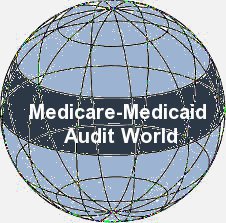 To date, most of the discussion about the RACs has revolved around the merits of an individual claim and the repayment demand appeal process, including whether the RACs have to establish good cause at an ALJ hearing to justify the reopening of a claim more than 1 year old.
To date, most of the discussion about the RACs has revolved around the merits of an individual claim and the repayment demand appeal process, including whether the RACs have to establish good cause at an ALJ hearing to justify the reopening of a claim more than 1 year old.
 Part 1 of this post provides a brief history of the evolution of the Medicare and Medicaid RAC programs and highlights provider concerns with the contingent fee part of the program. In Part 2, I will discuss why I believe that the contingent fee process developed by CMS does not comply with the Fifth Amendment to the United States Constitution and why, if this argument is presented in a proper case, there is a significant possibility that a Federal Court will issue an injunction stopping the program and order the return of the money paid to CMS in response to RAC demands.
Part 1 of this post provides a brief history of the evolution of the Medicare and Medicaid RAC programs and highlights provider concerns with the contingent fee part of the program. In Part 2, I will discuss why I believe that the contingent fee process developed by CMS does not comply with the Fifth Amendment to the United States Constitution and why, if this argument is presented in a proper case, there is a significant possibility that a Federal Court will issue an injunction stopping the program and order the return of the money paid to CMS in response to RAC demands.
A brief history of RAC contingent fees.
In § 306(a) of the Medicare Prescription Drug, Improvement, and Modernization Act of 2003, Congress directed CMS to  conduct a project to demonstrate the use of recovery audit contractors in identifying underpayments and overpayments under Parts A and B of Medicare and to recoup overpayments. Congress further provided that payment may be made to the RACs on a contingent basis from amounts they recovered. In § 302 of the Tax Relief and Healthcare Act of 2006, 42 U.S.C. § 1395ddd(h), Congress made the recovery audit program permanent and directed it be expanded to all fifty (50) states by January 1, 2010. Congress also directed that the RACs be paid on a contingent basis out of funds recovered by the RACs from overpayments, and in such amounts as the Secretary specified for the identification of underpayments.
conduct a project to demonstrate the use of recovery audit contractors in identifying underpayments and overpayments under Parts A and B of Medicare and to recoup overpayments. Congress further provided that payment may be made to the RACs on a contingent basis from amounts they recovered. In § 302 of the Tax Relief and Healthcare Act of 2006, 42 U.S.C. § 1395ddd(h), Congress made the recovery audit program permanent and directed it be expanded to all fifty (50) states by January 1, 2010. Congress also directed that the RACs be paid on a contingent basis out of funds recovered by the RACs from overpayments, and in such amounts as the Secretary specified for the identification of underpayments.
In § 6411 of the Affordable Care Act, Congress directed that by December 31, 2010, each State amend its Medicaid plan by establishing a program with 1 or more recovery audit contractors for the purpose of identifying underpayments and overpayments and recouping overpayments in the same manner as CMS does with Medicare RACs, and that payment to the RACs be made only from amounts recovered on a contingent basis for collecting overpayments and in such amounts as the State may specify for identifying underpayments.
On November 10, 2010, CMS published a proposed rule to implement § 6411 which provided in § 455.510 the following with reference to contingent fees:
(a) General. Fees paid to RACs shall be made only from amounts recovered.
(b) Overpayments. A State shall determine the contingency fee rate to be paid to a Medicaid RAC for the identification and recovery of Medicaid provider overpayments.
  (1) The contingency fee paid to a Medicaid RAC shall be based on a percentage of the overpayment recovered.
  (2) States shall determine at what stage in the Medicaid RAC process, post-recovery, Medicaid RACs will receive contingency fee payments.
  (3) Except as provided in paragraph (4) of this section, the contingency fee may not exceed that of the highest Medicare RAC, as specified by CMS in the Federal Register, unless the State submits, and CMS approves, a waiver of the specified maximum rate. If a State does not obtain a waiver of the specified maximum rate, any amount exceeding the specified maximum rate is not eligible for Federal financial participation (FFP), either from the collected overpayment amounts, or in the form of any other administrative or medical assistance claimed expenditure.
  (4) CMS will review and consider, on a case-by-case basis, a State’s welljustified request that CMS provide FFP in paying a Medicaid RAC(s) a contingency fee in excess of the then highest contingency fee paid to a Medicare RAC.
(c) Underpayments. States shall determine the fee paid to a Medicaid RAC to identify underpayments.
CMS received numerous comments about its proposal. Similar to the many concerns expressed in numerous less formal ways with regard to the Medicare RAC program, an overarching theme of the comments received by CMS is the fear that the contingent fee will encourage the RACs to find ways to turn proper claims into overpayments, thereby increasing the loss to providers and the gain to the RACs. CMS issued final regulations on September 16, 2011 which made only minor changes to § 455.510.
Please contact us if we can be of any assistance with an issue relating to RACs or their contingent fees or in helping to resolve other issues with any of the legion of CMS auditors that inhabit the Medicare-Medicaid Audit World.
 Medicare-Medicaid Audit World
Medicare-Medicaid Audit World






